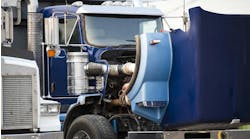It’s been an interesting couple of weeks for me spending time at several different events. I was at the recent Technology & Maintenance Council’s Annual Meeting & Transportation Technology Exhibition one week, and the following week I was at EPRI’s Electrification 2024 International Conference & Exposition. For those of you who may not be familiar with EPRI—the Electric Power Research Institute—it is an independent non-profit energy research, development, and deployment organization.
Historically, EPRI was not a “truck” show that NACFE attended. However, with the increased focus on the decarbonization of the trucking industry, I find myself—and other NACFE staffers—interacting more with folks in the energy sector, including utilities.
What’s interesting to me is that energy folks are as interested in trucking as we trucking folks are interested in energy. Mike Rowand, an EPRI consultant, was at TMC and, not surprisingly, at the EPRI event. I was, not surprisingly, at TMC, a truck event, but also at EPRI.
Rowand and I were in opposite roles at the two shows. He is a lifelong utility guy, and I am a lifelong trucking guy. At TMC, he was the smart energy/utility guy who represented the energy sector’s role in the decarbonization of trucking. At EPRI, I probably was the person there with the most knowledge of trucking—not to brag—who hoped to talk about trucking’s challenges with electrification.
What is also interesting is that both events had about the same number of attendees, and both were, to some extent, working on the challenge of getting to near-zero or zero emissions when moving freight.
See also: It’s not too early to think about your fleet’s future power
I think both Rowand and I have similar views on where things stand in the freight electrification space. While we have made progress with BEVs, we still have a long way to go. The classic caveat is that BEVs are not for everyone. At their current state of development, BEVs work in select use cases including terminal tractors, vans and step vans, medium-duty box trucks, and heavy-duty regional haul. However, they are not ready for long-haul disparate routes.
Rowand and I also agree that the trucking sector and the energy sector—two groups that have not worked together closely in the past—need to collaborate to help fleets move goods more sustainably.
While we are not at opposite ends of the issue, fleets and utilities have vastly different perspectives on what it will take to electrify trucking. I think the fact that energy folks are taking time to attend trucking events to gain a better understanding of how fleets operate and the challenges they face on the road to electrification will go a long way to remove some of the roadblocks that are currently in the way. At the same time, I think the fact that trucking folks are attending energy conferences in larger numbers to learn more about how utilities operate and their challenges is also important because it shows that we recognize the fact that we need to partner with utilities for the best outcome for both utilities and fleets.
Let me give you an example of the language we use. Load for trucking is the freight in the box, while in utility, it is the electric load required by a site. Transmission for utilities is the system that delivers electricity from the grid to a site, while in trucking, a transmission sits between an engine and the driveline. It can be quite interesting when fleets and utilities start talking about the meanings of common words.
They say that “politics makes strange bedfellows.” I think the same could be said about the electrification of transportation, but I am betting that before too long it won’t seem so strange for the trucking industry and utilities to routinely work together.



